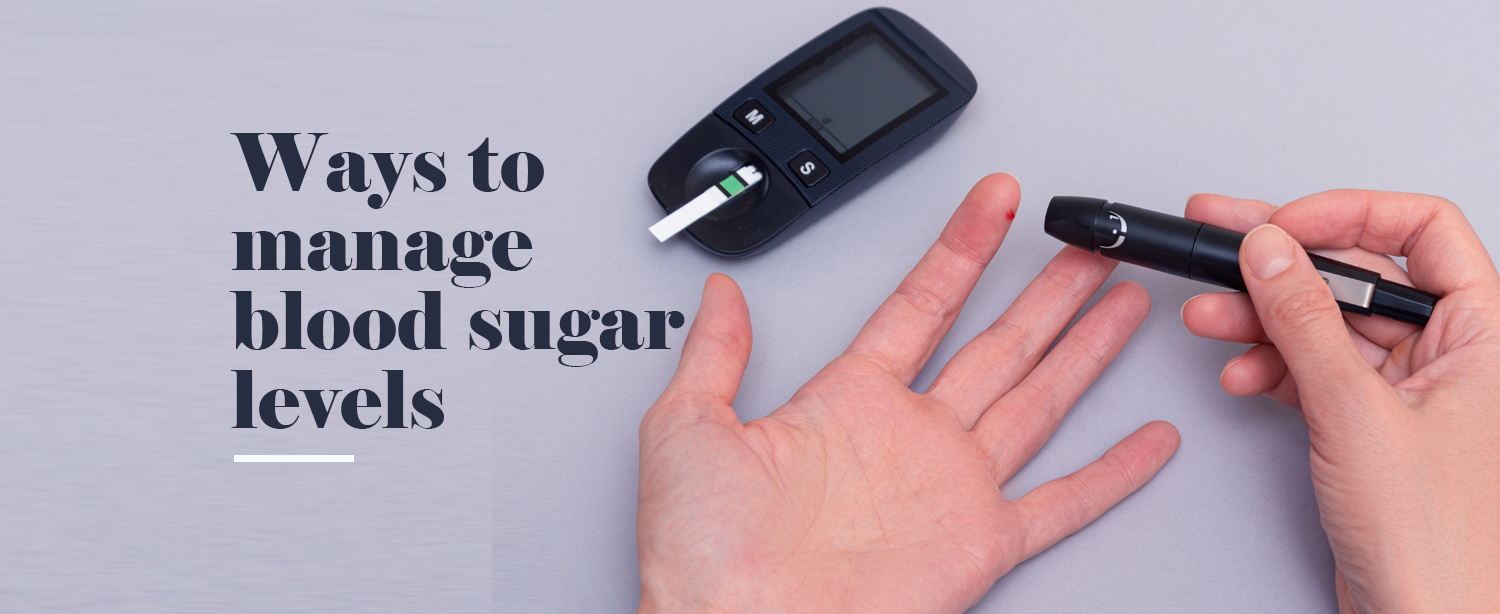India is known as the diabetes capital of the world. Type 2 diabetes, the most common form of this condition affects around 2.4 percent of the rural population and 11.6 percent of the urban population in India. Many factors influence your blood sugar levels; some are under your control, while others are not. At times, your daily health habits can also influence your blood sugar levels. High blood sugar levels on a regular or ongoing basis can harm your nerves, blood vessels, and organs and may lead to serious complications over time. You must seek medical care to help manage your blood sugar levels.
For diabetic patients, the overall blood sugar levels indicate how well you’ve managed your condition. When your level remains normal and consistent, you reduce your risk of problems such as vision loss and kidney disease. You’ll not only be able to control your blood sugar, but you’ll also be less likely to have a heart attack or stroke. Medications, dietary changes, physical activity and healthy lifestyle habits can balance your blood sugar levels and keep you healthy.
How your diet can control blood sugar
Follow these simple food habits to help manage your blood sugar levels and avoid fluctuations:
- Plan your meals
Choose to eat smaller meals at regular intervals to help control your blood sugar levels throughout the day. Some people manage their blood sugar better by eating at the same time each day. Speak to a nutritionist to make a diet plan that is right for you. - Practice portion control
Portion control helps regulate calorie intake and can aid in weight management. As a result, weight control promotes healthy blood sugar levels and lowers the risk of type 2 diabetes. - Balance your food
When you eat carbohydrates, your blood sugar rises. The glycemic index (GI) of a food measures how quickly this can occur. The greater the number, the faster your glucose levels will rise. Limit your consumption of high GI foods that include processed and refined foods. If you must consume something high on the index, pair it with low-GI foods that include fresh fruits and vegetables, legumes and whole grains. - Hydration
Drinking plenty of water may help keep blood sugar levels within normal ranges. It not only keeps you hydrated, but it also helps your kidneys flush out excess sugar through urine. - Snack smarter
Sodas and packaged foods are usually high in calories, salt, and added sugar, but low in vitamins and minerals. If you get hungry between meals, choose to eat healthy snacks. - Increase your fibre intake
It isn’t broken down by your body, so it doesn’t affect your blood sugar levels. Make an effort to add up more vegetables, fruits and leafy greens to your diet.
Ways to lower your Blood sugar
High blood sugar levels can be dangerous if not treated promptly, causing both short-term and long-term problems. It is critical to keep your blood sugar levels as close to normal to prevent or delay long-term, serious health problems such as heart disease, vision loss, and kidney disease. Follow these lifestyle tips to avoid high blood sugar levels:
- Exercise regularly
Regular exercise can help you maintain a healthy weight and improve your insulin sensitivity. Increased insulin sensitivity causes cells to use the sugar in the bloodstream. - Manage your stress
Blood sugar levels can be affected by stress. Stress causes the release of hormones such as glucagon and cortisol. Exercise, relaxation, and meditation reduce stress and blood sugar levels significantly. - Monitor your glucose levels
If you’ve been diagnosed with diabetes or pre-diabetes, monitoring your sugar levels will help you track your blood sugar levels regularly and take action if required. - Quit smoking
Nicotine raises blood sugar levels by altering how your body reacts to insulin. Furthermore, smoking causes inflammation, which can raise blood sugar levels. - Lose weight
Being overweight is associated with an increased risk of diabetes and insulin resistance. Weight loss lowers your blood sugar levels and avoids complications. - Get enough sleep
Getting enough sleep each night is an excellent way to help keep blood sugar levels in check.
Diabetes care at Kokilaben Dhirubhai Ambani Hospital
Does diabetes and obesity run in your family? Are you at a high risk of diabetic complications due to increased blood sugar levels? Consult our doctors for comprehensive diabetes care that includes screening, management and prevention of complications in diabetes. Meet doctors at our Diabetic Clinic for holistic diabetes care. https://www.kokilabenhospital.com/departments/clinicaldepartments/endocrinologydiabetes.html


